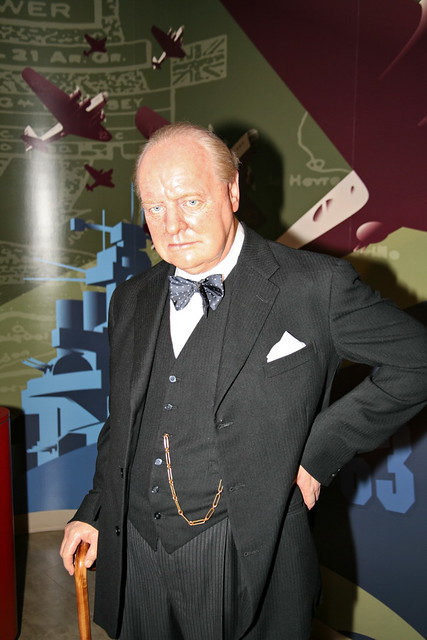 Sir Winston Churchill hated being surprised, particularly by bad news.
Sir Winston Churchill hated being surprised, particularly by bad news. According to Karl Weick and Kathleen Sutcliffe, the authors of "Managing the Unexpected",
"Winston Churchill provides a good example of ... self-conscious auditing. During world war two, Churchill made the terrible discovery that Singapore was much more vulnerable to a Japanese land invasion than he first thought. Reflecting on this unexpected discovery, Churchill commented in his history of the war, “I ought to have known. My advisers ought to have known, and I ought to have been told, and I ought to have asked”. Churchill’s audit consisted of four questions: Why didn’t I know? Why didn’t my advisers know? Why wasn’t I told? Why didn’t I ask?”This concept of a leadership Knowledge Audit is a very powerful one. We have already talked about the knowledge bubble that leaders can get into, where they hear only what they want to hear, and are told only what people think they want to be told. This can be a disastrous situation for a leader. Even more of the risk is that a leader can create systems in the organisation which are almost designed to create nasty surprises.
Weick and Sutcliffe quote the example of the ferry boat “Herald of Free Enterprise” which sank offshore Belgium in 1987 with the loss of 193 lives. It sank because the bow doors had never been closed, and it had not been ready for sea, but had put to sea nonetheless. The standing orders for “Readiness for Sea” were as follows.
“Heads of department are to report to the master immediately if they are aware of any deficiency which is likely to cause their departments to be unready to see in any respect at the due sailing time. In the absence of any such reports the Master will assume, at the due sailing time, that the vessel is ready for sea in all respects”.Weick and Sutcliffe notes that this order fails Churchill’s knowledge audit in two ways.
- Firstly the heads of departments weren't required to be aware that the vessel was seaworthy, only to report if they know that it wasn't ("Why didn't my advisors know"?).
- Secondly, if the Master heard nothing, he didn’t ask “where’s the report” - he just put to sea ("Why didnt I ask?").
In fact the person in charge of closing the bow doors had fallen asleep, and the reporting chain (which relied on reporting unreadiness, not readiness) had failed. The advisors didn't know, and didn't ask. They told the Master nothing, and the Master didn't ask either. The Master was in an knowledge bubble - and the result was disaster.
For those of you concerned with the effective transfer of knowledge up the hierarchy - up the chain of command - consider Churchill’s Knowledge Audit, and audit each person's knowledge supply using the four questions
- Would I know?
- Would my advisers know?
- Would I be told?
- Would I ask?”




2 comments:
Very insightful. Reminds me of the following statement by Secretary of Defense Donald Rumsfeld:
"Now what is the message there? The message is that there are no "knowns." There are things we know that we know. There are known unknowns. That is to say there are things that we now know we don't know. But there are also unknown unknowns. There are things we do not know we don't know. So when we do the best we can and we pull all this information together, and we then say well that's basically what we see as the situation, that is really only the known knowns and the known unknowns. And each year, we discover a few more of those unknown unknowns. It sounds like a riddle. It isn't a riddle. It is a very serious, important matter. There's another way to phrase that and that is that the absence of evidence is not evidence of absence. It is basically saying the same thing in a different way. Simply because you do not have evidence that something exists does not mean that you have evidence that it doesn't exist. And yet almost always, when we make our threat assessments, when we look at the world, we end up basing it on the first two pieces of that puzzle, rather than all three.
Hi John, yes, many similarities, especially to the last 4 sentences of your Rumsfeld quote
Post a Comment